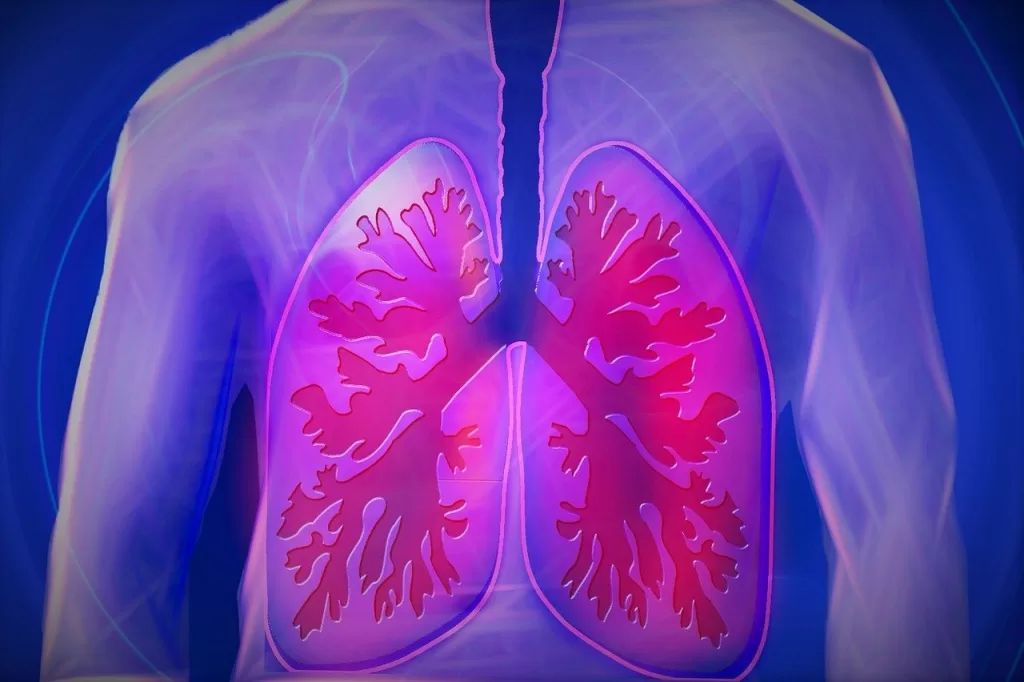“Can heart patients drink tea? The association between tea drinking and its possible effects on people with cardiac issues that I examine in this topic. I explore different kinds of tea, their constituents, and how they could impact your heart health, taking into account things like antioxidants, caffeine, and any interactions with drugs or heart-related diseases.
Importance of Diet for Heart Patients
Diet is essential for controlling the illness and general health of cardiac patients. A heart-healthy diet emphasizes good drinks that are good for your heart, whole grains, lean meats, fruits, vegetables, and healthy fats like those found in nuts and avocados while lowering cholesterol, salt, and unsaturated lipids i.e. oils and trans fats. A diet like this lowers blood pressure, cholesterol, and weight, which in turn reduces the risk of heart attacks, heart disease progression, and other cardiovascular problems.
Common Concerns About Caffeine and Tea Consumption
Caffeine and tea consumption often raise concerns due to their potential effects on health. Some common concerns include:
- Stimulation and Sleep: Caffeine in tea can cause stimulation, leading you to sleep disturbances if consumed in large amounts or close to bedtime.
- Heart Health: High caffeine intake may temporarily increase your heart rate and blood pressure, which could be a concern for individuals with existing heart conditions.
- Dehydration: Caffeine’s diuretic effect might contribute to increased urine production and potential dehydration, although this effect is often overstated with moderate consumption.
- Interactions with Medications: Tea, especially green tea, contains compounds that can interact with certain medications, affecting their absorption or effectiveness in you.
- Stomach Irritation: For some individuals, excessive tea consumption, especially on an empty stomach, might lead to stomach discomfort or acid reflux due to its tannin content.
- Pregnancy and Fertility: Excessive caffeine intake, including from tea, might pose risks during pregnancy and can affect fertility in some individuals. This is according to National Institutes of Health.
Understanding Heart Health

Explanation of Heart Diseases and Conditions
Heart diseases are a broad category of disorders that impact the heart’s ability to operate. This covers congenital heart defects, arrhythmias, heart valve issues, coronary artery disease (CAD), and heart failure. Numerous variables, including high blood pressure, high cholesterol, diabetes, obesity, smoking, and a sedentary lifestyle, might contribute to these disorders. They may result in consequences such as cardiac arrest, strokes, or heart attacks.
Impact of Diet on Heart Health
A healthy diet is essential for heart health maintenance. Lowering cholesterol, trans fats, saturated fats, and sodium while increasing whole grains, lean proteins, fruits, unsaturated lipids and vegetables is part of a heart-healthy diet. This dietary strategy lowers the risk of heart disease by controlling blood pressure, weight, and cholesterol levels. Nuts, salmon, and olive oil are good sources of omega-3 fatty acids, which are also beneficial to heart health.
Role of Caffeine in Heart Health and Potential Risks
Tea, coffee, and other beverages contain caffeine, which can affect heart health in both good and bad ways. Caffeine may temporarily improve alertness and focus when you consume it in moderation. On the other hand, consuming too much coffee can cause palpitations, an elevated heart rate, and elevated blood pressure. Caffeine should be consumed in moderation by those who have heart problems or are highly sensitive to it, as it may worsen pre-existing cardiac abnormalities or cause palpitations. The effects of caffeine might also differ according on a person’s tolerance and sensitivity levels. For individuals with heart issues, seeking professional advice from a healthcare provider might offer tailored recommendations regarding caffeine consumption.
Benefits of Tea for Heart Patients
Antioxidant properties of tea: Tea, especially green and black tea, contains antioxidants such as flavonoids and catechins. These compounds help neutralize harmful free radicals in the body, reducing oxidative stress and inflammation. Antioxidants in tea are thought to play a role in protecting cells from damage and supporting overall cardiovascular health.
Potential reduction in heart disease risk: Research suggests that regular consumption of tea, particularly green tea, might contribute to a reduced risk of heart disease. The antioxidants present in tea may help prevent the oxidation of LDL cholesterol (often referred to as “bad” cholesterol), potentially reducing the buildup of plaque in arteries. This, in turn, could lower the risk of atherosclerosis and coronary artery disease.
Positive effects on blood pressure and cholesterol levels: Tea consumption has shown some promise in positively impacting blood pressure and cholesterol levels. Studies indicate that certain compounds in tea may help relax blood vessels, leading to improved blood flow and potentially contributing to lower blood pressure. Additionally, some evidence suggests that regular tea consumption might modestly lower LDL cholesterol levels, contributing to better heart health.
Considerations for Heart Patients
Impact of Caffeine on Heart Health
Caffeine can have various impacts on heart health, and its effects can vary based on individual sensitivity and consumption levels.
- Stimulation of the Heart: Caffeine is a stimulant that can temporarily increase heart rate and blood pressure. For some individuals, especially those sensitive to caffeine, this can be concerning, particularly if they have underlying heart conditions like arrhythmias or hypertension.
- Arrhythmias: Excessive caffeine intake might trigger palpitations or irregular heartbeats (arrhythmias) in some people. While these effects are often temporary and mild, individuals with certain heart rhythm disorders may be more susceptible to such reactions.
- Blood Pressure: Caffeine can cause a short-term spike in blood pressure. For those with hypertension or individuals prone to spikes in blood pressure, monitoring caffeine intake is crucial, as prolonged elevations could potentially contribute to cardiovascular issues.
- Tolerance and Adaptation: Regular caffeine consumers often develop tolerance, meaning they might experience fewer pronounced effects over time due to the body’s adaptation. However, this can vary widely among individuals.
- Interactions with Medications: Caffeine can interact with certain medications, affecting their absorption or effectiveness. This is particularly important for individuals taking medications for heart conditions or related issues.
Monitoring Caffeine Intake and Potential Interactions With Medications
Monitoring caffeine intake is essential, especially for individuals taking medications, as it can interact with certain drugs. Here are some key points to consider:
- Know your limit: Understand your body’s tolerance to caffeine. For most adults, moderate caffeine intake (about 200–400 milligrams per day, equivalent to 2-4 cups of coffee) is considered safe. However, individual tolerance levels can vary.
- Read labels: Be mindful of the caffeine content in various beverages and foods. It’s not just coffee; tea, energy drinks, sodas, and even some medications contain caffeine.
- Understand medication interactions: Some medications, especially those for heart conditions, can interact with caffeine. It may affect their absorption or metabolism, potentially altering their effectiveness or causing side effects. Always consult your healthcare provider or pharmacist to understand potential interactions.
- Communicate with your healthcare provider. Inform your doctor about your caffeine intake, including any supplements or medications that contain caffeine. This helps them consider potential interactions when prescribing or adjusting medications.
- Monitor symptoms: Be aware of how caffeine affects you. If you experience palpitations, increased heart rate, anxiety, or other unusual symptoms after consuming caffeine, consider reducing your intake and seeking medical advice if symptoms persist.
- Consider timing: Avoid consuming caffeine close to taking medications, especially if you’ve been advised against it by your healthcare provider. Space out consumption to reduce the risk of interactions.
- Personalize your approach. Each person’s response to caffeine and medication interactions can differ. Therefore, tailor your intake based on your health condition and individual tolerance level.
Choosing Decaffeinated Tea Options

When opting for decaffeinated tea, consider these points to make an informed choice:
- Decaffeination method: Various methods exist to remove caffeine from tea, such as using carbon dioxide, ethyl acetate, or water. Some prefer water-based methods, as they tend to retain more of the tea’s original flavor.
- Check caffeine content: While labeled as decaffeinated, these teas may still contain trace amounts of caffeine. If sensitive to caffeine or aiming to avoid it completely, look for teas explicitly labeled as “caffeine-free.”
- Quality and flavor: Decaffeination processes might alter the taste or quality of the tea. Experiment with different brands to find one that suits your taste preferences without compromising on flavor.
- Health considerations: Some decaffeination methods might involve chemicals, albeit in trace amounts. If concerned about chemical residues, opt for teas decaffeinated using natural methods, like water or carbon dioxide.
- Read labels: Look for clear labeling indicating the decaffeination process used and any additional flavorings or additives.
- Variety: Not all tea types have decaffeinated options available. While common types like black, green, and herbal teas often have decaf versions, specialty or less common varieties might be harder to find.
- Brewing instructions: Decaffeinated teas might require slightly different brewing times or temperatures compared to their caffeinated counterparts. Follow the brewing instructions carefully for the best taste.
Types of Tea Suitable for Heart Patients
Herbal Teas Without Caffeine
Herbal teas are a great caffeine-free alternative to traditional teas. Here are several herbal teas that don’t contain caffeine:
- Chamomile Tea: Known for its calming properties, chamomile tea is caffeine-free and often used to promote relaxation and improve sleep quality.
- Peppermint Tea: Refreshing and soothing, peppermint tea is caffeine-free and aids digestion. It has a cooling effect and can be enjoyed hot or cold.
- Rooibos Tea: Also called red tea, rooibos is naturally caffeine-free and rich in antioxidants. It has a mild, slightly sweet taste and is popular for its potential health benefits.
- Hibiscus Tea: Made from the dried petals of the hibiscus flower, this vibrant tea is caffeine-free and known for its tart flavor. It’s rich in antioxidants and might help lower blood pressure.
- Ginger Tea: With its spicy and warming taste, ginger tea is caffeine-free and is often consumed to soothe digestion, alleviate nausea, and reduce inflammation.
- Lemon Balm Tea: This herbal tea, made from the lemon balm plant, is caffeine-free and is believed to have calming effects, promoting relaxation and reducing stress.
- Lemongrass Tea: Fragrant and citrusy, lemongrass tea is caffeine-free and is often enjoyed for its refreshing taste and potential digestive benefits.
- Nettle Tea: Made from the leaves of the stinging nettle plant, this herbal tea is caffeine-free and is reputed to have various health benefits, including reducing inflammation and supporting urinary health.
Green Tea and its Potential Benefits
Green tea is renowned for its potential health benefits due to its rich content of antioxidants and other bioactive compounds. Some of its potential advantages include:
- High Antioxidant Content: Green tea is rich in polyphenols, particularly catechins like epigallocatechin gallate (EGCG), which have potent antioxidant properties. These compounds help combat oxidative stress and reduce cell damage caused by free radicals.
- Heart Health: Regular consumption of green tea has been associated with a lower risk of cardiovascular diseases. It may help in improving cholesterol levels by reducing LDL cholesterol (the “bad” cholesterol) and increasing HDL cholesterol (the “good” cholesterol). Additionally, it might support healthy blood vessel function and blood pressure regulation.
- Weight Management: Some studies suggest that the compounds in green tea, particularly EGCG, could aid in boosting metabolism and enhancing fat oxidation. Green tea extract is often found in some weight loss supplements for its potential to assist in fat burning and weight management.
- Brain Function: The caffeine and amino acid L-theanine present in green tea can improve brain function, enhancing mood, alertness, and cognitive performance.
- Cancer Prevention: While research is ongoing, some studies suggest that the antioxidants in green tea might have protective effects against certain types of cancers due to their ability to inhibit the growth of cancer cells.
- Anti-inflammatory Properties: The polyphenols in green tea exhibit anti-inflammatory effects, potentially reducing inflammation in the body and contributing to various health benefits.
Black Tea and its Moderate Caffeine Content
Black tea, derived from the Camellia sinensis plant, contains moderate levels of caffeine. Compared to coffee, black tea generally has a lower caffeine content but still provides an energy boost. Here are some points about black tea and its caffeine content:
- Caffeine Content: On average, an 8-ounce cup of black tea contains around 40–70 milligrams of caffeine. However, this can vary based on factors like brewing time, temperature, and tea variety.
- Stimulant Effects: The caffeine in black tea acts as a mild stimulant, offering an energy boost and improving focus and alertness for many individuals. However, the effects are typically milder and shorter-lived compared to those of coffee.
- Moderate Consumption: Black tea can be a suitable option for those seeking a moderate caffeine intake. It provides a middle ground between high-caffeine beverages like coffee and caffeine-free options like herbal teas.
- Health Benefits: Alongside its caffeine content, black tea contains antioxidants and polyphenols that contribute to potential health benefits, such as supporting heart health, aiding in digestion, and having anti-inflammatory properties.
- Varieties: Different types of black tea can have varying caffeine levels. For instance, English Breakfast and Assam teas often contain higher caffeine amounts compared to Darjeeling or Ceylon teas.
- Brewing and Caffeine: Longer brewing times or higher water temperatures can extract more caffeine from black tea leaves. Steeping black tea for a shorter duration or using cooler water temperatures can slightly reduce the caffeine content.
Moderation and Individual Differences
Importance of Moderation in Tea Consumption
Moderation in tea consumption, as with any dietary element, is crucial for several reasons:
- Caffeine Sensitivity: Tea contains caffeine, albeit in varying amounts depending on the type and brewing method. For individuals sensitive to caffeine, excessive intake can lead to side effects like increased heart rate, nervousness, or disrupted sleep.
- Potential Interactions: Tea, especially herbal varieties, contains bioactive compounds that might interact with medications or exacerbate certain health conditions. Drinking large quantities could potentially interfere with medications or worsen existing health issues.
- Hydration and Electrolyte Balance: While tea can contribute to hydration, excessive consumption might not adequately replace lost fluids, potentially leading to mild dehydration. Additionally, excessive tea drinking might disrupt electrolyte balance due to its diuretic effects.
- Tolerance and Adaptation: Regular tea drinkers might develop tolerance to caffeine, needing more to achieve the same effects. This might lead to increased consumption over time, potentially surpassing moderate levels.
- Teeth and Digestive Health: Tea, especially black tea, can stain teeth and might be harsh on the stomach for some individuals, particularly if consumed excessively or on an empty stomach.
- Diversity in Diet: Over-reliance on any one beverage, even a healthy one like tea, might limit the variety of nutrients and antioxidants obtained from a diverse diet.
Individual Variations in Sensitivity to Caffeine
Sensitivity to caffeine varies widely among individuals due to several factors:
- Genetics: Differences in genetic makeup influence how efficiently the body metabolizes caffeine. Some people possess genetic variations that affect the enzymes responsible for breaking down caffeine, leading to varying rates of clearance from the body.
- Body Weight and Composition: Body weight and composition can impact caffeine sensitivity. Generally, individuals with lower body weight might feel the effects of caffeine more intensely than those with higher body weight due to differences in distribution and absorption.
- Enzyme Activity: Enzyme activity levels in the liver, specifically cytochrome P450 enzymes, can affect caffeine metabolism. Variations in these enzymes among individuals can result in differing rates of caffeine breakdown.
- Regular Consumption: Regular caffeine consumers tend to develop tolerance over time, meaning they might require higher amounts to experience the same effects. This tolerance can vary significantly among individuals.
- Age and Hormones: Sensitivity to caffeine might change with age or hormonal changes. Adolescents, for instance, might be more sensitive to caffeine than adults due to differences in their developing nervous systems.
- Underlying Health Conditions: Certain health conditions, such as anxiety disorders, heart conditions, or gastrointestinal issues (GERD), can amplify the effects of caffeine. Individuals with these conditions might be more sensitive to its stimulating effects.
- Medication Interactions: Some medications can interact with caffeine, affecting its metabolism or enhancing its effects. This can vary among individuals based on their medications and metabolic pathways.
Summation:
Consulting with a healthcare professional for personalized advice is recommended to determine how caffeine may specifically affect you based on your health conditions and medication regimen. They can provide you with guidance on safe caffeine consumption levels and potential interactions to ensure the best possible outcomes for each person’s unique circumstances.
What other drinks are good for your heart health? Discover www.medicalantidote.com for additional health knowledge.


